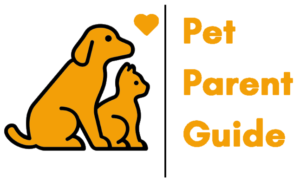
Hey there, pet parents of small and toy-breed dogs like Chihuahuas, Yorkshire Terriers, and Pomeranians! Maintaining a healthy weight is crucial for your furry friends. These pint-sized pups have unique needs when it comes to weight management.
In this guide, we’ll explore the importance of maintaining a proper weight, tips for portion control, suitable exercise routines, and healthy treatment alternatives. We’ll discuss the risks of obesity, such as joint problems and reduced lifespan, and provide practical advice on how to help your little companion achieve and maintain a healthy weight.
Remember, your dog’s well-being is in your hands, and by following these guidelines, you can ensure they live a long, happy, and active life. Let’s embark on this journey together and keep those small and toy-breed dogs in tip-top shape!
Health Issues Caused by Weight Problems
As a proud pet parent, you need to be aware of health issues that could potentially affect your small or toy breed dog, such as the Pomeranian or Chihuahua, due to weight problems. Here are some key points to keep in mind.
- Joint Issues: Overweight dogs, like Dachshunds or Shih Tzus, often suffer from joint problems. Excess weight places undue stress on their small frames, leading to conditions like arthritis.
- Diabetes: Like humans, overweight dogs are at a higher risk of developing diabetes. The excessive body fat in breeds like Miniature Poodles can lead to insulin resistance.
- Heart Disease: Extra pounds strain the heart, leading to diseases such as congestive heart failure. Toy breeds like Chihuahuas are particularly susceptible.
- Breathing Difficulties: Excess weight can lead to respiratory issues. Breeds like the Pekingese, with already compromised respiratory systems, can struggle more with weight gain.
- Liver Disease: Overweight Yorkies and other small dogs may develop liver disease. Fat buildup in the liver can lead to inflammation and malfunction.
- Skin Conditions: Overweight dogs often develop skin issues due to excess fat folds. Breeds like the Bulldog are especially prone due to their skin’s unique structure.
- Lower Life Expectancy: Overweight dogs, such as Cavalier King Charles Spaniels, tend to have a shorter lifespan. Proper weight management can add years to their lives.
- Quality of Life: Beyond specific health problems, overweight dogs like the Bichon Frise simply don’t have the same quality of life. They tire more easily, have difficulty moving, and may become less social.
Tips to Promote Healthy Weight in Your Dogs
Maintaining a healthy weight for your small or toy breed dog, such as a Chihuahua or a Shih Tzu, is absolutely critical for their overall health. Here are ten pointers that will guide you in promoting an optimal weight for your petite pooch.
- Regular Vet Checks: It’s essential to schedule routine vet visits for your Dachshund. Veterinarians can monitor your dog’s weight accurately and provide valuable advice on diet adjustments to prevent weight-related issues.
- Balanced Diet: Your Pomeranian needs a balanced diet to maintain a healthy weight. High-quality, breed-specific food helps in meeting all of your pet’s nutritional needs and controlling weight effectively.
- Portion Control: Avoid overfeeding your Maltese. Even for small breeds, it’s essential to follow recommended feeding guidelines to prevent excessive weight gain. It’s crucial to stick to recommended feeding guidelines based on your dog’s breed and size.
- Treat Moderation: Treats should be given in moderation to your Yorkshire Terrier. High-calorie treats, even in small quantities, can quickly add to weight gain.
- Regular Exercise: Engage your Papillon in regular exercise. Daily walks or playing fetch can help burn off extra calories and contribute to weight management.
- Limit Human Food: Try to avoid feeding your Bichon Frise too much human food. These foods are often high in calories and not nutritionally balanced for dogs, leading to unwanted weight gain.
- Weight Loss Foods: If your Pekingese is overweight, consider switching to a specialized weight management food. These diets are specifically formulated to help dogs shed pounds while still receiving necessary nutrients.
- Hydration: Make sure your Toy Poodle always has access to fresh water. Proper hydration aids digestion and nutrient absorption, promoting overall health.
- Regular Weigh-ins: Keep track of your Chihuahua’s weight by regular weigh-ins. This will allow you to accurately monitor any changes and take necessary action before they become an issue.
- Mental Stimulation: Keeping your Shih Tzu’s mind stimulated is also important. Interactive toys can help them stay active, thereby preventing overeating due to boredom.
Remember, every small or toy breed dog has unique needs. Thus, what works for a Yorkshire Terrier may not work for a Maltese. Regular vet consultations are key to crafting the right diet and exercise plan for your tiny companion. Keeping them at a healthy weight is essential for ensuring a happy, active, and long life for your furry friend.
Benefits of a Pet with a Healthy Weight
Keeping your pet at a healthy weight, whether a lively Jack Russell or a stately Maine Coon cat, can greatly enhance their overall well-being. Here are some of the many benefits your pet can enjoy with a healthy weight.
- Longer Lifespan: Maintaining a healthy weight can extend your Pomeranian’s life. Overweight pets have a shorter lifespan, so weight management contributes to longevity.
- Improved Mobility: Weight management enhances your Dachshund’s mobility. Excess weight can burden their tiny legs and cause joint issues, which proper weight control can prevent.
- Less Risk of Disease: A well-maintained weight reduces your Shih Tzu’s risk of various diseases, including diabetes, heart disease, and certain types of cancer.
- Better Respiratory Health: Extra pounds can stress your Pug’s respiratory system. A healthy weight makes breathing easier and can improve their stamina during physical activity.
- Enhanced Mood: Pets at a healthy weight, like a cheerful Beagle, are generally happier. They can move easily and are more likely to engage in play, improving their overall mood.
- Healthier Skin and Coat: A well-balanced diet that maintains a healthy weight can also contribute to a shiny, healthy coat and good skin health in your Golden Retriever.
- Lower Vet Bills: Weight-related issues can lead to expensive veterinary care. By keeping your Cocker Spaniel at a healthy weight, you can potentially save on vet bills in the long run.
- Greater Quality of Life: Overall, a healthy weight contributes to a better quality of life for your Maine Coon cat or any pet. They’ll be more active, more comfortable, and generally happier.
Pet Food Ideas to Promote Healthy Weight
Choosing the right food is essential in managing your pet’s weight. Whether you have a Chihuahua or a Shih Tzu, here are some pet food ideas that can help promote a healthy weight for your furry friend.
- High Protein Foods: Feed your Pomeranian high-protein foods. Protein helps maintain muscle mass while promoting fat loss, aiding in weight management.
- Low-Calorie Treats: Instead of high-calorie treats, offer your Dachshund low-calorie alternatives. Consider veggies like carrots or cucumbers, which are healthy and low in calories.
- Fiber-Rich Foods: Incorporate fibre-rich foods into your Bichon Frise’s diet. Fibre helps your dog feel fuller longer, preventing overeating.
- Portion Control: Measure your Toy Poodle’s meals carefully to avoid overfeeding. Using a measuring cup can ensure accurate portions.
- Fresh Fruits: Offer your Maltese fresh fruits like apples and blueberries. They are not only low in calories and high in nutrients, but also add variety to your pet’s diet.
- Lean Meats: For your Yorkshire Terrier, include lean meats in their diet. They are high in protein and can be less fattening than processed dog food.
- Weight Management Foods: There are specialized pet foods designed to promote weight loss. These could be a good option for your overweight Pekingese.
- Hydration: Always ensure that your Papillon has access to fresh water. Staying hydrated can help control hunger and support overall health.
Conclusion
Maintaining a healthy weight for your pet is pivotal for their overall well-being. From choosing high-protein, fibre-rich foods to ensuring portion control and hydration, every small step contributes to their weight management. While breed-specific needs are critical, remember to tailor these ideas to your pet’s unique dietary requirements.
Most importantly, always consult your vet before making significant changes to your pet’s diet. A healthy pet is a happy pet, and managing their weight effectively will lead to a more vibrant, active, and fulfilling life for your beloved four-legged family member.
Frequently Asked Questions
How can I tell if my dog is overweight?
Signs that your dog may be overweight include difficulty feeling their ribs, loss of an obvious waist, fat deposits on the back and base of the tail, and a reluctance to exercise. If you notice these signs, consult with your vet.
How can I help my cat lose weight?
Help your cat lose weight by providing portion-controlled meals and low-calorie foods. Encourage regular play and physical activities. Always consult with a vet before starting a weight loss plan for your cat.
Are certain dog breeds more prone to weight issues?
Yes, certain breeds such as Labrador Retrievers, Dachshunds, and Beagles are more prone to obesity. It’s important to understand your breed’s specific needs and monitor their weight regularly.
Can an overweight pet develop health issues?
Absolutely. Overweight pets are at a higher risk of developing various health problems, including diabetes, heart disease, respiratory issues, and joint problems. Regular vet check-ups can help monitor and maintain their weight.

